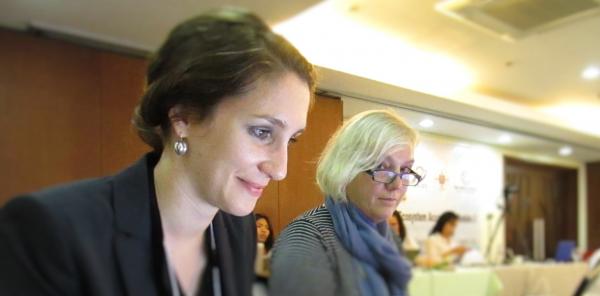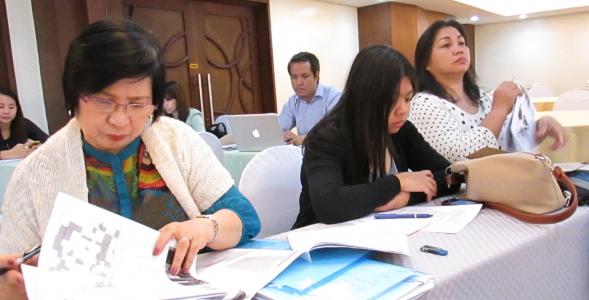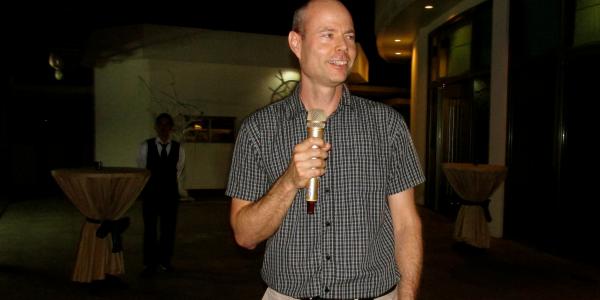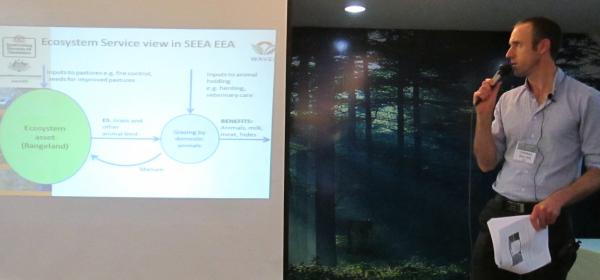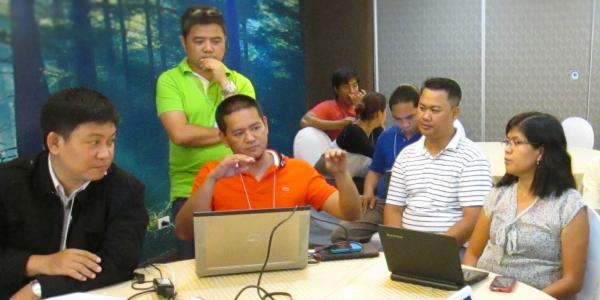By Sofia Ahlroth, WAVES Senior Environmental Economist
October 3, 2014 – Learning the fundamentals of ecosystem accounting and how to construct accounts can be a daunting and time-consuming endeavor. One option is to bring in a consultant to undertake this, but the WAVES approach is different – we work with the technical staff in the government departments and adopt a ‘learning by doing’ approach. I saw this at work in a recent workshop in Manila and it was exhilarating to see the group coming to a common understanding.
The first ecosystem accounts training in February, which provided a broad introduction to the concepts, was followed by work by the Philippines technical working groups to identify and compile the necessary data. By September, the group had moved a great deal further in understanding what ecosystem accounts are and what they can be used for.
This second workshop (agenda) focused on producing accounts and taking their understanding a bit further. A lot of data had been collated but it was still a bit obscure how it would actually be integrated into accounts.
The training, attended by 50 participants from the Technical Working Groups of Southern Palawan and the Laguna Lake Basin, as well as three staff from the Philippine Statistics Authority and the National Economic and Development Authority, really went into detail, and the group came up with a lot of good questions.
The first week of the workshop focused on conducting training on specific parts of the ecosystem accounts. During the second week we had working sessions where the technical working groups compiled actual accounts along with consultants, which included Lars Hein from Wageningen University, and John Power and Tom Walter from the Australian Bureau of Statistics.
As the week progressed, there were several light-bulb moments on how better data could improve or fill gaps in policies or regulations.
For Southern Palawan, a rich ecosystem that holds mineral deposits, preliminary data from different sources was fed into a software. Some of the policy challenges began to emerge even before the full accounts were done – in some instances, the same land had been allotted both for agriculture use as well as tenements. The participants were surprised to see how pervasive the problem was. The need for better evidence through accounts became obvious to all.
I also learned how valuable it is to have staff from different agencies involved to build a common understanding of the accounts and what they can be used for—from statisticians and other experts who compile the data (often in addition to their regular workload), to prospective users of the accounts who ensure there is an institutional setting in place that builds demand for the accounts.
Now that all the agencies are on board, they are discussing how to make this part of their daily business. The agencies involved have started to discuss the need to share data, and the need to have a common custodian of the data.
As an environmental economist based in Washington, D.C., not only did I enjoy witnessing the coming together of the accounts, but I really enjoyed meeting and working with our Filipino colleagues and international experts who are committed and full of energy to carry NCA forward. I also love the Philippine tradition of ending a long week of workshops with karaoke night!

